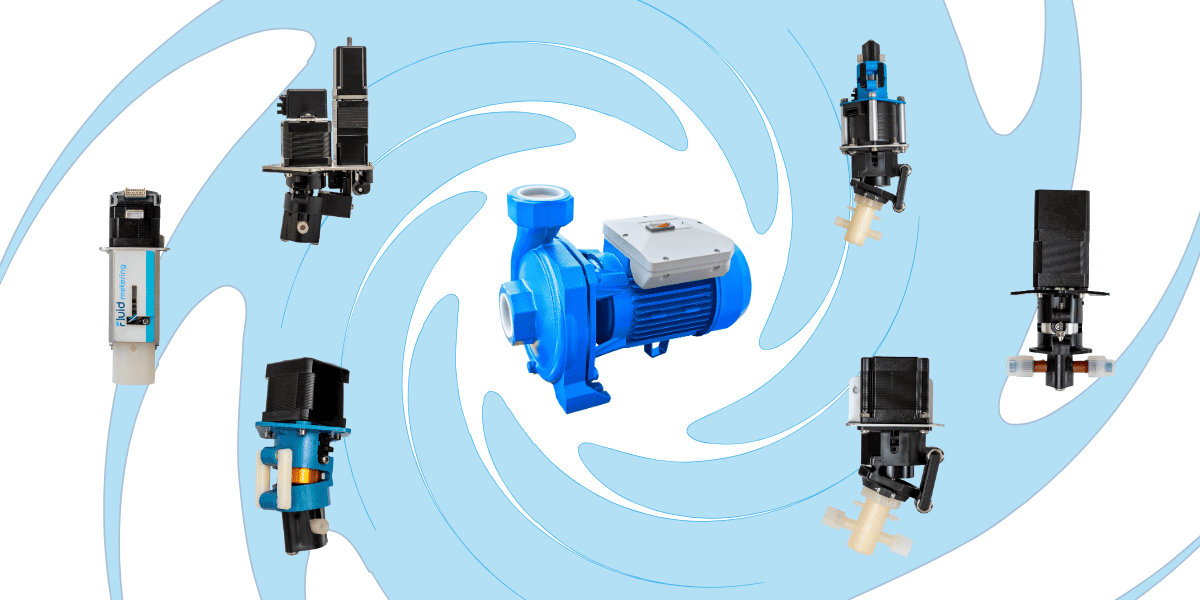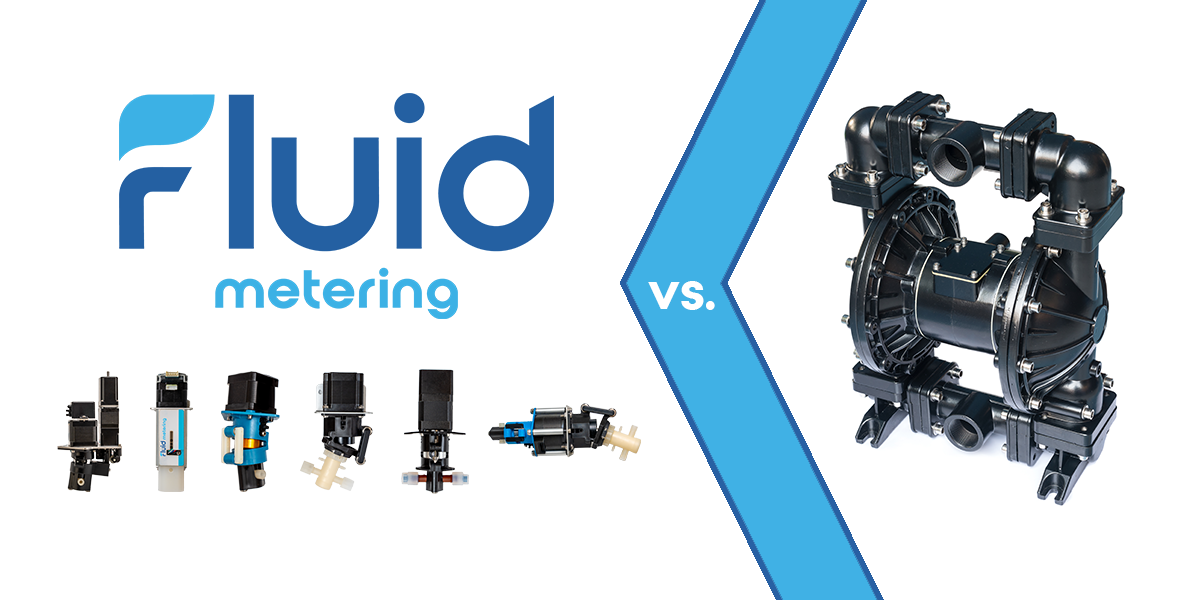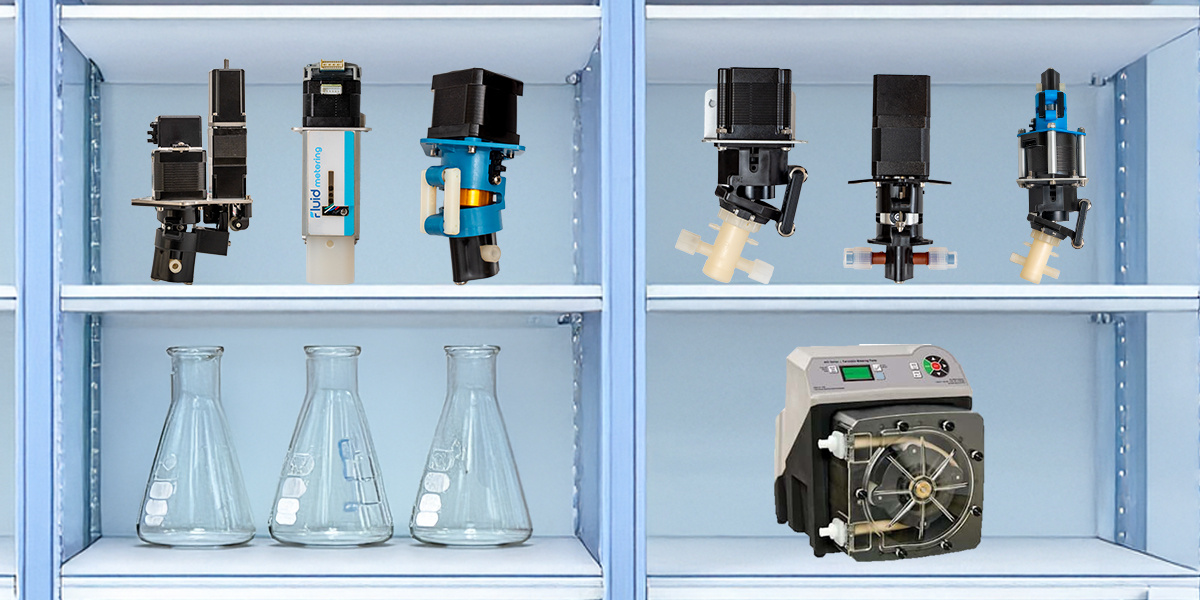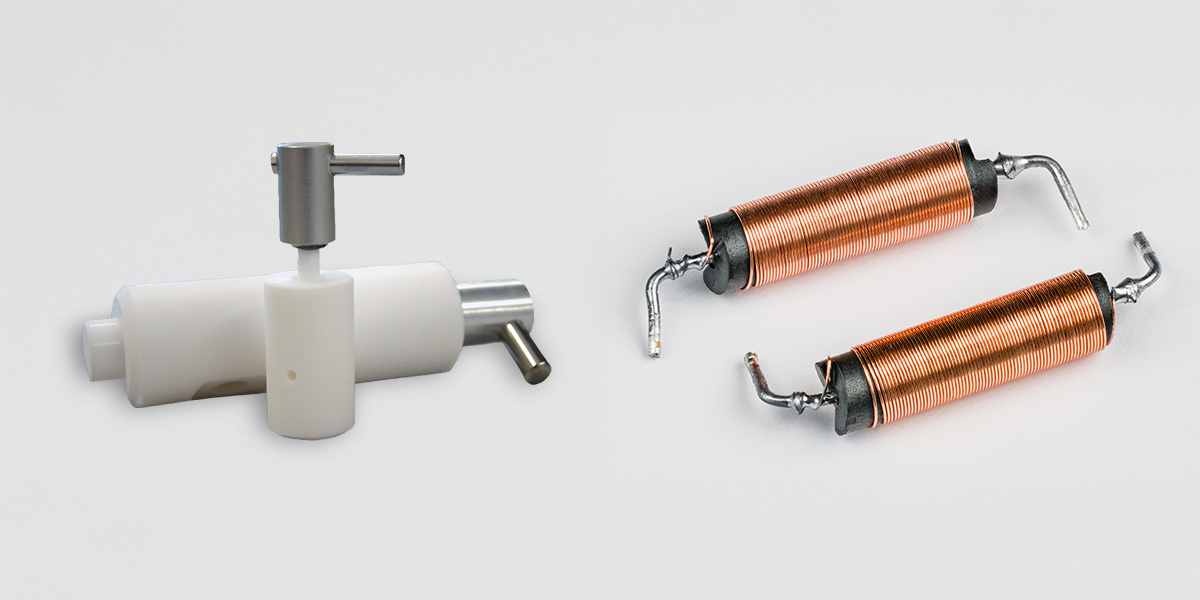Fluid Metering's CeramPump® Valveless Piston Technology vs. Diaphragm Pumps
Key Takeaways: For valveless piston pumps vs. diaphragm pumps, Fluid Metering’s CeramPump® technology offers superior precision, clog resistance,...
2 min read
Blake Webb : Updated on July 22, 2025

Fluid Metering pumps and centrifugal pumps each have their own set of strengths, so how can you tell which is better for your application? With all the options out there, your head might be stuck spinning in an endless centrifugal motion as you wonder what to do! Let's clear things up as we delve into the key differences and advantages of Fluid Metering and centrifugal pumps to help your decision-making process flow smoothly.
Operational Differences: Precision vs. Volume
At the core of their functionality, Fluid Metering pumps and centrifugal pumps serve different purposes. Fluid Metering pumps are designed for precision metering and dispensing. They excel in applications where exact quantities of dosed, metered, or dispensed liquids are crucial. Whether it's pharmaceutical production, laboratory analysis, or chemical processing, Fluid Metering pumps ensure that each drop is accounted for with unmatched accuracy.
On the other hand, centrifugal pumps are better suited for scenarios where precise quantities are not as critical. These pumps are commonly used in industrial applications to move larger volumes of liquid, such as firefighting, waste management, and irrigation. The primary goal here is to transport substantial amounts of fluid efficiently, without the need for pinpoint accuracy.
High Flow Applications: Precision Under Pressure
While centrifugal pumps can handle high flow applications, they are not very resistant to backflow. Fluid Metering pumps have high resistance to backflow and have the ability to maintain precision under varying backpressures. This makes them ideal for applications such as pumping through filtration columns, where maintaining volumetric efficiency is essential despite fluctuating pressures. Centrifugal pumps, while capable of handling larger volumes, cannot match the precision and accuracy of Fluid Metering pumps in such scenarios.
Temperature Variations: Consistent Performance
Temperature changes can significantly impact the performance of centrifugal pumps, especially when handling viscous fluids. As the temperature fluctuates, so does the viscosity of the fluid, leading to inconsistent performance. Fluid Metering pumps, however, are designed to handle a wide range of viscosities, up to the consistency of peanut butter, without compromising accuracy. This makes them a reliable choice for applications involving temperature-sensitive fluids.
Reliability and Longevity
Maintenance is another area where Fluid Metering pumps outshine their centrifugal counterparts. Centrifugal pumps, driven by a motor that spins an internal impeller, are prone to overheating, cavitation, and clogging. These issues can lead to loss of prime and damage to the impeller, limiting the pump's maximum suction pressure and efficiency. Additionally, centrifugal pumps handling viscous fluids or fluids with many particulates often require semi-open or open impellers, which are less efficient and not ideal for high-pressure applications.

Fluid Metering's valveless piston pumps, on the other hand, are designed to handle viscous fluids with ease. Constructed with chemically inert components, these pumps resist abrasion and chemical erosion, ensuring durability and longevity. They can be run forwards and backwards without damage, eliminating concerns about flow direction. This translates to lower maintenance requirements and reduced downtime, further enhancing their reliability.

When Precision Is Non-Negotiable
When dealing with precision fluid handling, the choice of pump can make all the difference. While centrifugal pumps have their place in high-volume, less precise applications, Fluid Metering pumps stand out in accuracy and reliability. From maintaining precision under varying backpressures to delivering consistent performance despite temperature changes, Fluid Metering pumps are the go-to solution for industries that demand exactitude.

Key Takeaways: For valveless piston pumps vs. diaphragm pumps, Fluid Metering’s CeramPump® technology offers superior precision, clog resistance,...

1 min read
Key Takeaways: For precision piston pumps vs. peristaltic pumps, Fluid Metering’s valveless designs deliver superior accuracy, high-pressure...

Key Takeaways: For precision fluid delivery vs. solenoid pumps, Fluid Metering’s valveless piston pumps outperform in accuracy, reliability, and...